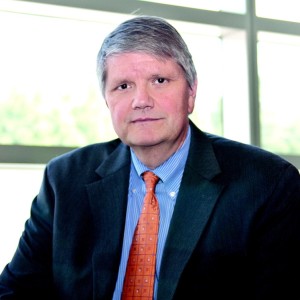 Flying home from visiting my 92-year-old mother in Orlando recently, I reflected on the length and the shortness of life. It struck me that my mother has lived almost exactly twice as long as my first wife (Debbie), who lived to be 46. By most standards, Mom has lived a long life (with more to go), while Debbie’s life was tragically brief. Despite the vast differences in the length of their lives, both lived well.
Flying home from visiting my 92-year-old mother in Orlando recently, I reflected on the length and the shortness of life. It struck me that my mother has lived almost exactly twice as long as my first wife (Debbie), who lived to be 46. By most standards, Mom has lived a long life (with more to go), while Debbie’s life was tragically brief. Despite the vast differences in the length of their lives, both lived well.
As I flew across the country, I re-read portions of Marcus Aurelius’ Meditations. Marcus comes at the length of life from a few different angles, but what I get from his writings is that life is like a point on an infinite line; it’s simultaneously immeasurably brief, but also infinitely long (from the perspective of the point). This is a bit of an enigma; life is simultaneously brief and infinite. Life may be so short as to seem meaningless in the vastness of time, but it’s all we have; to us, it is eternity. Thinking further about the point in relation to the line, the point is nothing when compared to the line, but without the point and many others like it, the line would not exist. Similarly, our time on earth is brief, but human history is made up of countless brief lives such as yours and mine. Our task in life, then, is to live so that our time here is well lived, contributing what we can to the infinite line of history.
So, what does all this mean? Philosophers throughout the ages have pondered this very question. Being a practical sort, I’ll leave the deep ponderings to others and offer this, managing the enigma of life and time is to simultaneously live as though today is your last day, while also living as if you’ll live forever. So, how does one pull off this particular feat? Let’s consult our friends the Stoics.
One key to resolving this enigma is to consider what is under your control and what is not. Paraphrasing Epictetus, we can say that our thoughts, opinions and desires are under our control. Everything else you, at best, control to a small degree. Remember this and you’ll be less likely to get upset about trivial matters. You will also be better equipped to handle true adversity. When adversity strikes, think first about what you can and cannot control. Put your efforts into what you can control. Then consider what you might learn from the events. By doing this, you shift focus from lamenting what is (which you can’t control) to what can be. This shift helps you avoid wasting time on lamentations while simultaneously building your mental and emotional abilities for the future.
The second key is to remember that your tiny point, combined with all the other tiny points, is what makes up the whole of human history. The connectedness of all the points (lives) is what defines history. We all have the duty to make sure that our point makes humanity’s line better. This is one reason I’m so big on living with a purpose. Living purposefully increases the impact your life will have on the timeline of history. By living with a purpose, you are part of a positive chain, one life touching another, in a grand chain reaction that makes the world better. While this sounds kind of trite, I stand by its truth. We, each of us, have within our power the ability to make the entire world, and the entirety of human history, better.
I’ll bring this home with three quotes. First is from Merle Haggard, who said “By the time you get close to the answers, it’s nearly all over.” This is a bit depressing, unless you also consider the proverb made famous by Steve Jobs, “The journey is the reward.” Putting these two together tells us that the search for life’s answers is as important as actually finding the answers. The final quote is from James Taylor, who wrote, “The secret of life is enjoying the passage of time.” James is right – that is the secret to life. What better way to enjoy the passage of time than knowing you’re doing what you can do to make the world, and history, better? So live your life knowing that as the point matters to the line, your life matters to the infinite line of time. FBN
By Craig Van Slyke, Ph.D.
I spend a good bit of my time serving as dean at Northern Arizona University’s W.A. Franke College of Business, home to over 3,500 students, and faculty and staff who are dedicated to the success of those students and the economic development of Northern Arizona. For more information on The W.A. Franke College of Business, please see franke.nau.edu/. I welcome comments and feedback on these columns. Email your comments to craig.vanslyke@nau.edu, or follow me on Twitter @cvanslyke.





